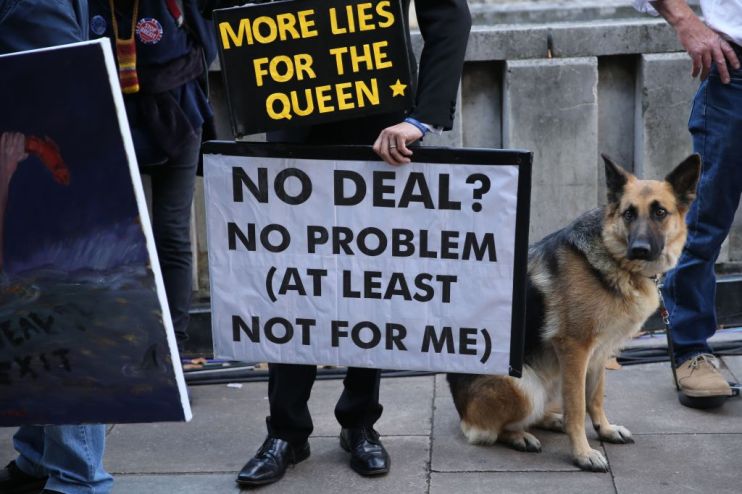DEBATE: Would a no-deal Brexit really be bad for business?

Would a no-deal Brexit really be detrimental for British business?
YES, says Dinesh Dhamija, an entrepreneur and a Liberal Democrat MEP for London
Crashing out of the EU with no deal will plunge us into 10 years of trade negotiations. That means even more uncertainty – and uncertainty is a cancer for business.
Already, foreign investment into UK companies has dropped to its lowest level in six years, no one is recruiting, and spending plans are on hold.
Last week, I spent a day visiting different businesses in the capital. As a London MEP, I wanted to see how different industries will be affected. All said that they were afraid of a no-deal Brexit.
First, I saw a tailor shop, which informed me that no-deal would create a double whammy of duty: 14 per cent import tax on fabric coming in, another 14 per cent on the finished product leaving the UK, drastically reducing profits.
Then there was the electric bike shop, which told me how they rely on European suppliers for parts and so are worried about the speed and ease of obtaining these because of customs delays.
Also, they currently pay zero per cent VAT on bike imports, but a no-deal Brexit could give them a sudden VAT bill, which on a £1m order could cripple cash flow.
Finally, there was an ad agency worried about talent shortages. They rely on freelancers to hit deadlines, and their freelancers – mostly European – are all prioritising other work from EU companies, where their future work is more certain.
I was an entrepreneur before turning to politics. I started selling airline tickets from a kiosk in Earl’s Court station and built it into a business that employed 2,000 people in 11 countries. I put my growth down to access to a large market: Europe.
The UK has 65m people, Europe has 512m. Under a no-deal Brexit, businesses immediately shrink their potential customer base to one eighth. It is impossible for large businesses to downsize, so they have no option but to move operations and jobs to Europe. Many already have, including Aviva, Barclays and Lloyds.
The reason the US is a powerful market is that companies there can sell freely to 325m people. Can you imagine if America applied inter-state tariffs overnight? There would be anarchy.
Yet this is exactly what Britain will be doing if we crash out on 31 October with no deal.
NO, says Brian Monteith, a Brexit Party MEP for North East England
What businesses want more than anything else is certainty, and they have had precious little of that in the last three years. But despite the disastrous dithering of the May administration, many business leaders insist that they are ready for a so-called no-deal Brexit.
Last month, Lord Wolfson, the chief executive of clothing firm Next, said that if Boris Johnson can’t negotiate a deal with Brussels by the end of October, there would only be “mild disruption” at the worst. He also correctly observed that firms like his are far more prepared now than they were six months ago.
We currently trade with countries such as the US, China, Brazil, and Australia under WTO terms. After we leave the EU, we will be free to negotiate mutually advantageous deals with those countries, which will increase free trade, not restrict it. Indeed, it appears that businesses in the UK are already embracing the opportunities Brexit offers: 236,000 UK businesses exported to overseas markets in 2017 – an increase of 6.6 per cent on the previous year.
What Remainers in parliament are really opposed to is any meaningful Brexit at all. They don’t have the confidence in Britain or British businesses.
But even if we do leave the EU without a formal agreement, calling it “no-deal” is a misnomer. Bilateral deals have already been signed, and more are in the pipeline.
This was always going to be the case. Planes will not be grounded. People will not die in hospitals because the NHS can’t get its hands on life-saving drugs. Students from EU countries will continue to study at some of our world-class universities, in the same way that they did before the EU was a glint in Robert Schuman’s eye.
A no-deal Brexit is really a “clean break”. It will allow us to exploit the lack of EU restrictions, such as establishing freeports across the UK; it will revitalise our much-reduced fishing industry; and it offers the opportunity to unleash a far more industrious and creative City on the world. That’s what the EU fears most – and so it should.
If Boris takes us out of the EU on 31 October without signing a withdrawal agreement, life will still go on. The opportunities of Brexit are too great for us not to take advantage of them.
Main image: Getty